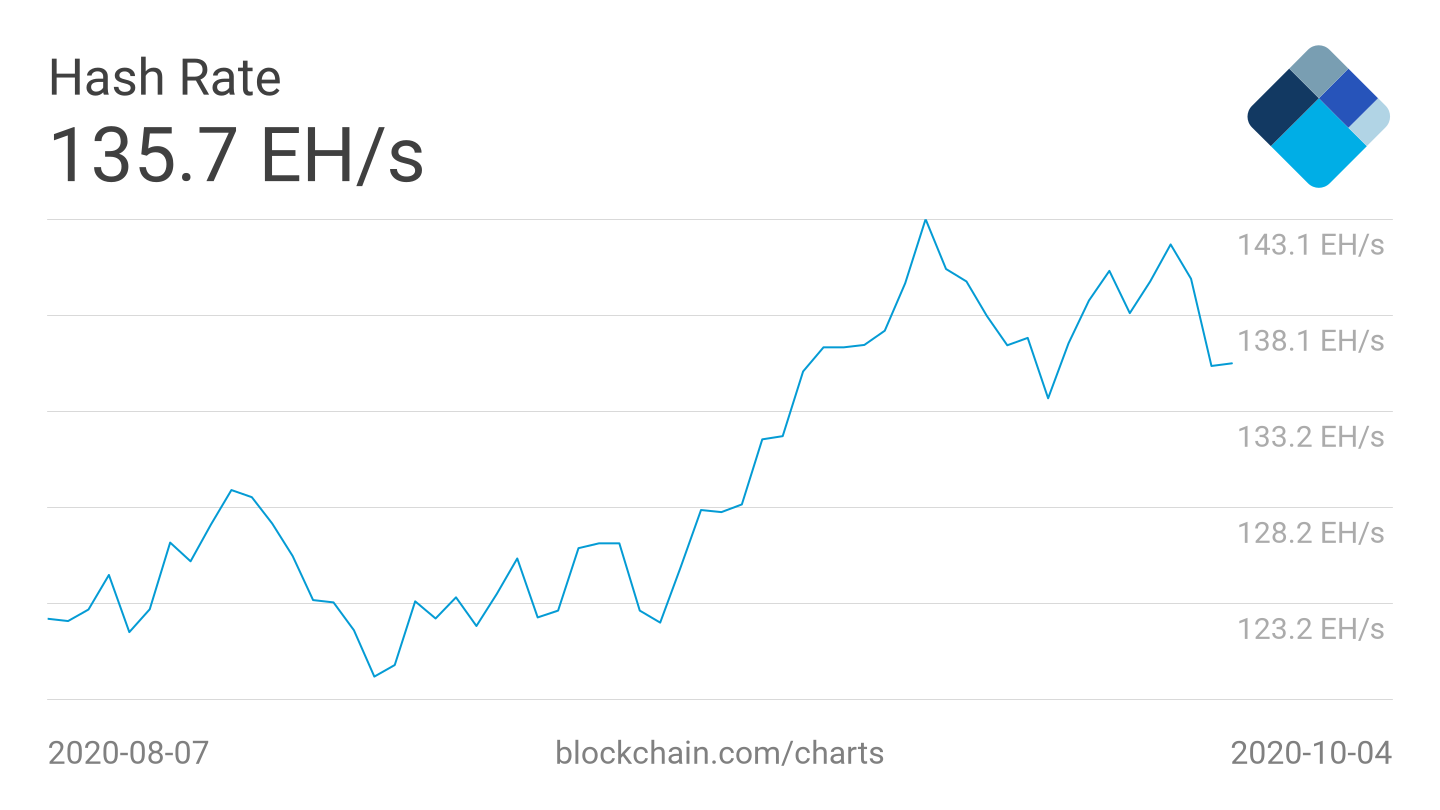Donald Trump boosts markets with improving health prospects, but coronavirus is taking its toll — Bitcoin eyes macro moves.
Bitcoin (BTC)
rose to highs of $10,730 before settling lower on Oct. 5 as markets
fluctuated in line with United States President Donald Trump contracting
COVID-19.
Cointelegraph takes a look at the factors set to
influence BTC price action this week, as the virus and its consequences
dictate the macro mood.
Trump health sends markets higher
President
Trump buoyed markets late Sunday as traders priced in the possibility
that he would leave hospital on Monday after treatment for COVID-19.
Futures
were up, reversing losses on Friday, along with major stock markets
including the S&P 500, to which Bitcoin continues to show high
correlation.
Trump’s coronavirus diagnosis had caused modest panic
late last week, with stocks diving and BTC/USD reacting in kind,
dropping from $10,940 to lows of $10,380.
“It’s been a really interesting journey; I learned a lot about Covid,” Trump said in a video update
posted to Twitter late Sunday, apparently addressed to a crowd of
supporters situated outside his hospital prior to a surprise
meet-and-greet:
“I learned it by really going to school —
this is the real school; this isn’t the ‘let’s read the book’ school,
and I get it, I understand it. It’s a very interesting thing and I’m
going to be letting you know about it.”
Wall Street had
yet to open at publishing time, with resumption of trading set to
dictate further market trajectory for the start of the week.

BTC/USD vs. S&P 500 one-year chart. Source: Skew
Cineworld shares drop 56% on coronavirus shutdown
Beyond Trump, coronavirus continues to create uncertainty in the U.S. and abroad.
New
York continued with phased infrastructure shutdowns on Monday, while in
Europe, the worsening infection rate caused Paris to close certain
establishments.
In a fresh toll to business, meanwhile, Cineworld,
the world’s second-biggest movie theater chain, said it would close its
entire operation in both the U.S. and United Kingdom until further
notice from Oct. 8. Its shares subsequently plunged 56% to a new all-time low.
Nevertheless,
rumors abound that Trump’s situation may in fact spur both political
sides in Washington to reach a stimulus deal, something which would have
an immediate impact on markets.
As Cointelegraph reported,
Treasury Secretary Steven Mnuchin had already alayed fears of a
continued stalemate by confirming that whatever happens, the package
would include another $1,200 stimulus check for eligible Americans.
The
long-term impact of state-sponsored income is in itself controversial,
with commentators previously arguing that once implemented, the checks
would be difficult to simply “turn off.”
At the time that the first round of checks hit in April, cryptocurrency exchanges noticed increased volume specifically for the amount of the $1,200 payouts.

BTC/USD one-week chart. Source: Coin360
Brexit deadline looms… again
Europe’s
turn in spotlight when it comes to macro market movements may lie ahead
of it, as last-minute intense talks over Brexit got underway Monday.
Long
a contentious issue for the British pound and its traders, the Brexit
deal — or lack of it — has previously even managed to produce knock-on effects for Bitcoin.
This
time around, the talks aim to produce a compromise before a crucial
European Union meeting on Oct. 15, with a realistic deadline to produce
consensus now set for sometime in early November.
Asked what the
impact of no deal would be, U.K. prime minister Boris Johnson told a BBC
radio show that the country “could more than live with it.”
In
London, FTSE 100 futures were nonetheless up on Monday, more than
reversing their losses from throughout the previous week’s trading.
Along with Brexit, as Cointelegraph noted,
the Bank of England is currently researching the idea of introducing
negative interest rates for the first time in its history.
Bitcoin difficulty, hash rate come down from peak
Recent selling pressure meant that Bitcoin’s fundamentals were unable to continue their record winning streak.
Difficulty,
perhaps the most important measure of miner health, barely moved at its
latest readjustment on Oct. 4. Previously, estimates suggested that the
metric would build on existing all-time highs to shoot higher still.
In the event, a 0.09% dip extinguished optimism, which was running high after the previous readjustment saw an 11.35% uptick.
Hash
rate, a measure of the computing power dedicated to validating the
Bitcoin blockchain, was also flat on Monday, hovering at 135 exahashes
per second (EH/s).
Seven-day hash rate highs had reached a record 143 EH/s in September, with another surge to 141 EH/s on Oct. 1.

Bitcoin seven-day average hash rate two-month chart. Source: Blockchain
As Cointelegraph reported, another difficulty metric, Difficulty Ribbon Compression, showed a much more bullish trend last week.
PlanB on stock-to-flow: Time for divergence
Zooming out, Bitcoin analysts appeared as satisfied as ever with the largest cryptocurrency’s performance.
For
quant analyst PlanB, creator of the stock-to-flow family of BTC price
models, it was now time for Bitcoin to follow its historical trend and
put in fresh gains.
The impetus was the 200-week moving average (200WMA), which on Oct. 4 reached a new all-time high of $6,800.
A favored price feature for PlanB, the 200WMA has never been broken in price downtrends, and currently increases by around $200 each month. Analyzing the latest data from stock-to-flow, PlanB summarized on Twitter:
“Time for the red and orange dots to divert from 200WMA again.”
Such
behavior, where the dots represent BTC/USD according to its distance
from halving events, has repeated following both the 2012 and 2016
halvings.

Bitcoin stock-to-flow chart as of Oct. 5. Source: PlanB/Twitter
source link : https://cointelegraph.com/news/trump-price-dots-and-covid-19-5-things-to-watch-in-bitcoin-this-week











